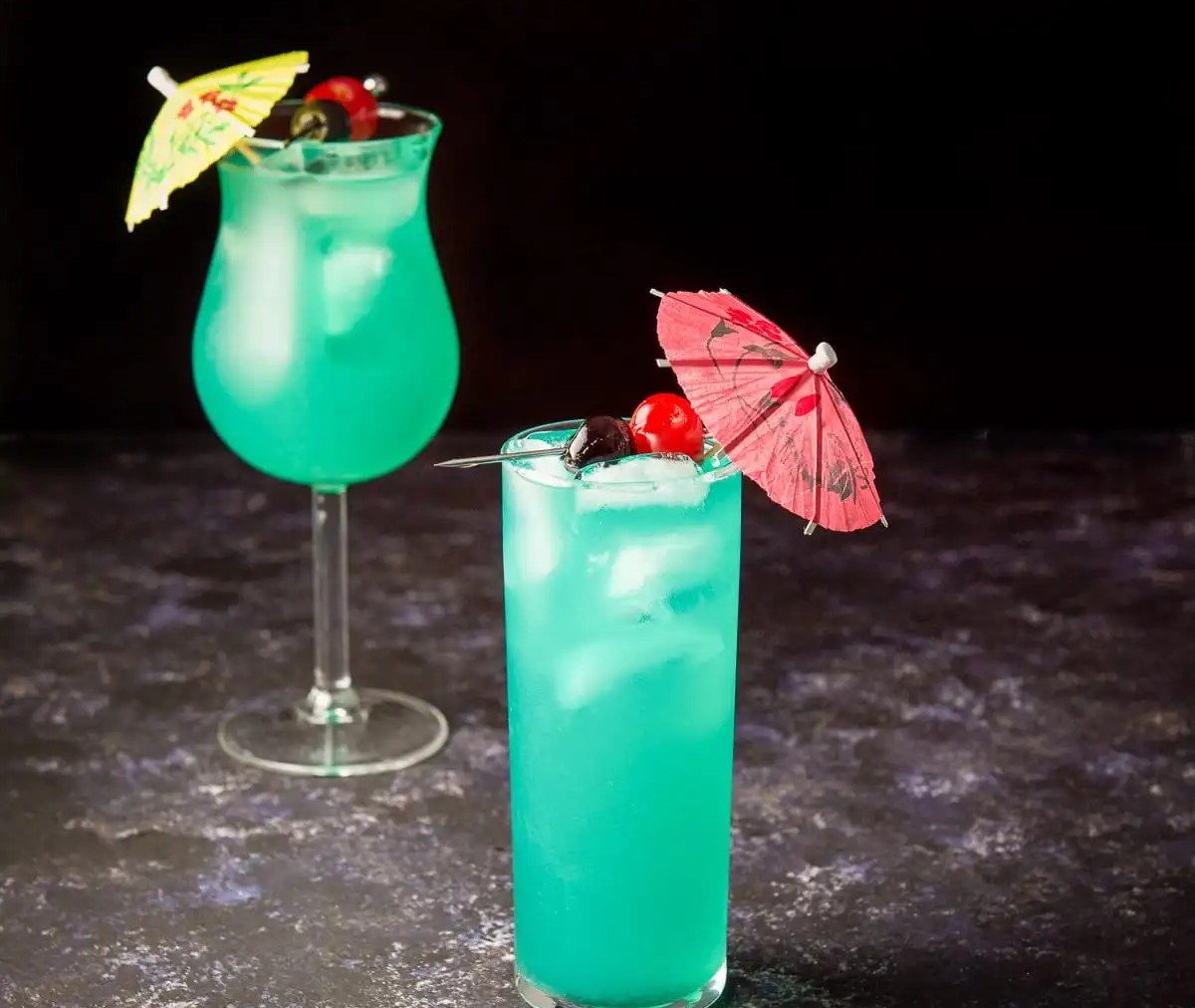
When it comes to indulging our taste buds, few things can rival the irresistible allure of sweets. From decadent chocolates to luscious cakes, desserts have an uncanny ability to captivate our senses and transport us to a world of delectable delights. However, behind their enticing facade lies a hidden secret – the presence of sweet poison.
In this article, we will delve into the enigmatic world of sweet poison and uncover eight fascinating facts that shed light on its nature and impact. From its addictive properties to its effect on our health, these facts will give you a deeper understanding of the hidden dangers that lurk within our favorite sugary treats.
So, prepare to be amazed and a little bit wary as we unravel the mysteries of sweet poison and explore the bittersweet side of our beloved desserts.
Key Takeaways:
- Sweet poison, or added sugar, hides in many foods and can lead to health issues like obesity and diabetes. Be aware of sneaky names and choose whole foods to avoid its harmful effects.
- Excessive sugar consumption can be addictive and impact mental health. By making mindful choices and reducing intake, we can take control of our health and well-being.
Sweet Poison A Hidden Culprit in Our Diets
Sweet poison, also known as added sugar, is an invisible but pervasive ingredient that lurks in many of our favorite foods and beverages. From sodas and candies to baked goods and even savory items like condiments and processed snacks, sweet poison can often go unnoticed, disguising itself with other names like high-fructose corn syrup, maltose, or dextrose. It’s a sneaky addition that adds empty calories and can contribute to various health issues when consumed in excess.
Sweet Poison Addictive Properties
Did you know that sweet poison can be just as addictive as certain drugs? Studies have shown that consuming excessive amounts of sugar can trigger the release of dopamine in the brain, which creates a pleasurable sensation. This “sugar high” can lead to cravings and a cycle of sugar dependence, making it challenging for individuals to reduce their sugar intake and break free from its grasp.
Sweet Poison Health Impacts
The excessive consumption of sweet poison has been linked to various health issues. From obesity and type 2 diabetes to heart disease and tooth decay, the negative impacts on our well-being are significant. Additionally, consuming too much sugar can lead to inflammation in the body, which has been associated with a range of chronic conditions, including certain types of cancer.
Sweet Poison Sneaky Names
When reading food labels, it’s important to be aware of the different names under which sweet poison can hide. Some common terms used to denote added sugar include sucrose, fructose, maltodextrin, and glucose. By familiarizing ourselves with these aliases, we can make more informed choices when selecting our food and beverages.
Sweet Poison The Sugar Industry’s Influence
The sugar industry has had a significant impact on public perception of sweet poison. Through clever marketing and lobbying efforts, sugar has been portrayed as a harmless indulgence rather than a potential health risk. This misinformation has contributed to the widespread consumption of excessive amounts of sugar and its detrimental effects on society’s well-being.
Sweet Poison Hidden Sugar in “Healthy” Foods
Many so-called “healthy” foods can contain surprisingly high amounts of sweet poison. Items such as flavored yogurt, granola bars, and fruit juices often advertise themselves as nutritious options, but they can be packed with hidden sugars. It’s essential to read labels carefully and choose whole, unprocessed foods whenever possible to avoid unknowingly consuming excessive amounts of sweet poison.
Sweet Poison Sugar’s Impact on Mental Health
While the physical health risks of sweet poison are well-documented, its effects on mental health are often overlooked. Research has shown that excessive sugar consumption may contribute to an increased risk of depression, anxiety, and cognitive decline. By reducing our intake of sweet poison, we can potentially improve our overall mental well-being.
Sweet Poison Taking Control of Our Health
By being mindful of the sweet poison we consume and making conscious choices to reduce our intake, we can regain control of our health. Incorporating more whole foods, opting for natural sweeteners like honey or maple syrup, and being cautious about hidden sources of added sugar are essential steps we can take towards a healthier lifestyle.
Conclusion
In conclusion, sweet poison, as intriguing as it may sound, refers to the hidden dangers and health risks associated with consuming excessive amounts of sugar. While sugar is a delightful treat that many of us enjoy, it’s essential to understand the potential harm it can cause to our bodies.These enigmatic facts about sweet poison shed light on why it’s important to be mindful of our sugar intake. From contributing to obesity and diabetes to affecting our energy levels and cognitive function, excessive sugar consumption can have detrimental effects on our overall health and well-being.By educating ourselves about the hidden sources of sugar and making conscious choices to reduce our consumption, we can protect ourselves from the potential dangers of sweet poison. Remember, moderation is key when it comes to indulging in sugary delights.Let us cultivate a balanced approach to nutrition and prioritize our long-term health. By doing so, we can savor the sweetness of life without falling into the clutches of sweet poison.
FAQs
1. How does excessive sugar consumption affect our health?
Excessive sugar consumption can lead to various health issues, such as obesity, diabetes, heart disease, and tooth decay. It can also negatively impact energy levels, mood, and cognitive function.
2. What are the hidden sources of sugar?
Sugar can be found in many processed and packaged foods, including soft drinks, snacks, desserts, and even seemingly healthy options like yogurt and granola bars. It’s essential to read food labels and be aware of ingredients like corn syrup, fructose, and sucrose.
3. How can I reduce my sugar intake?
You can reduce your sugar intake by opting for whole, unprocessed foods, cooking at home, and being mindful of portion sizes. Using natural sweeteners like honey or fruit can also be a healthier alternative.
4. Is all sugar bad for you?
No, not all sugar is bad for you. Natural sugars found in fruits are accompanied by fiber and other beneficial nutrients. The real concern lies in added sugars found in processed and packaged foods.
5. Can I still enjoy sweet treats while being mindful of sugar intake?
Absolutely! Moderation is key. You can still enjoy sweet treats occasionally, but it’s important to be mindful of portion sizes and choose healthier alternatives, such as dark chocolate or homemade desserts with reduced sugar.
Unmasking sweet poison's enigmatic nature may leave you craving more mind-boggling revelations. Satisfy your curiosity by exploring toxicity lurking in unexpected places, uncovering health risks associated with seemingly harmless substances, or delving into the world of artificial sweeteners and their potential impact on well-being. Each topic offers a captivating journey down the rabbit hole of knowledge, empowering you to make informed decisions about what you consume and how it affects your health.
Was this page helpful?
Our commitment to delivering trustworthy and engaging content is at the heart of what we do. Each fact on our site is contributed by real users like you, bringing a wealth of diverse insights and information. To ensure the highest standards of accuracy and reliability, our dedicated editors meticulously review each submission. This process guarantees that the facts we share are not only fascinating but also credible. Trust in our commitment to quality and authenticity as you explore and learn with us.


